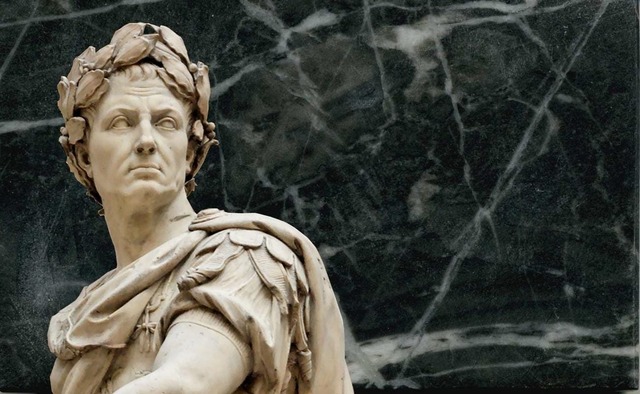Julius Caesar is more than just a famous name from history class. His life was a cataclysmic turning point that didn’t just change the Roman world, but shaped the very foundation of modern government, language, and leadership. From the battlefields of Gaul to the marble floor of the Senate, his actions left five indelible marks that are still visible thousands of years later.
1. He Switched Off the Roman Republic
By the time Caesar rose to power, the Roman Republic—a system where elected senators held authority—was already deeply flawed and unstable. However, it was Caesar who delivered the final, fatal blow. After his military triumphs, he refused the Senate’s order to disband his army, famously crossing the Rubicon River in 49 BCE to start a civil war.
This act was a direct challenge to the authority of the state. When he emerged victorious and declared himself dictator perpetuo (dictator for life), he centralized all power in one man’s hands. While he was assassinated soon after, his actions created a permanent, irreversible shift. The Republic was functionally dead, and the groundwork was laid for his adopted heir, Augustus, to become the first Roman Emperor, ushering in centuries of imperial rule.
2. The Blueprint for Modern Warfare
Caesar was, above all, a military genius. His campaigns conquering Gaul (modern-day France and parts of Western Europe) were legendary for their speed, scale, and strategic brilliance. He didn’t just win battles; he mastered logistics, quickly building bridges, siege works, and fortifications to outmaneuver massive tribal armies.
His ability to inspire fierce loyalty in his troops and lead them from the front set a new standard for command. Even today, military academies around the globe study Caesar’s written accounts of his campaigns, such as Commentarii de Bello Gallico, to learn about effective tactics, motivation, and leadership under pressure.
3. The Calendar That Still Hangs on Your Wall
Not all of Caesar’s reforms involved war and politics; some were purely practical and profoundly lasting. In 46 BCE, he instituted the Julian calendar, a massive overhaul of Rome’s confusing timekeeping system. Working with astronomers, he created a 365-day year with a leap year every four years.
This simple change had an immediate, positive impact on civil organization and agriculture across the Roman world. Even though it was later refined into the Gregorian calendar we use today, Caesar’s system was the backbone of Western timekeeping for over 1,600 years. He also enacted lasting social reforms, including debt relief and extending Roman citizenship to certain conquered peoples, helping to integrate and stabilize the vast territories.
4. He Created the Precedent for Autocratic Rule
By taking the title dictator perpetuo, Caesar provided a clear, potent example of concentrated, singular power. In the political landscape, this act centralized government, effectively replacing the messy, fractured system of the Republic. This model—one supreme leader holding total authority—became a precedent for nearly all Western monarchies and autocracies that followed.
His method of ruling—using popular support from the lower classes to bypass the traditional elite—became a playbook for future leaders seeking absolute power. His life is a perpetual case study in political science regarding the dangers and necessities of concentrated authority in a crisis.
5. His Name Is Still a Title of Power
Perhaps the most surprising part of Caesar’s legacy is his linguistic and cultural footprint. His name, Caesar, transcended being just a family name; it became a title for “ruler.”
This name was directly adopted and adapted by the leaders of two of the world’s great empires. In Germany and Austria, the term became “Kaiser.” In Russia, it morphed into “Tsar” (or Czar). For centuries, leaders of vast domains asserted their authority by associating themselves directly with the power and prestige of Julius Caesar. His story—the rise, the reforms, and the dramatic assassination—remains one of the most compelling narratives in Western literature and drama.
A Legacy Etched in Stone
Julius Caesar was a contradiction: a brilliant reformer and a ruthless dictator, a builder of infrastructure and a destroyer of political tradition. His life story serves as a mirror reflecting the eternal struggle between order and freedom. By ending the chaos of the Roman Republic, he built the foundation for an Empire that would shape law, language, and culture for millennia, ensuring his shadow stretches all the way into our modern world.

